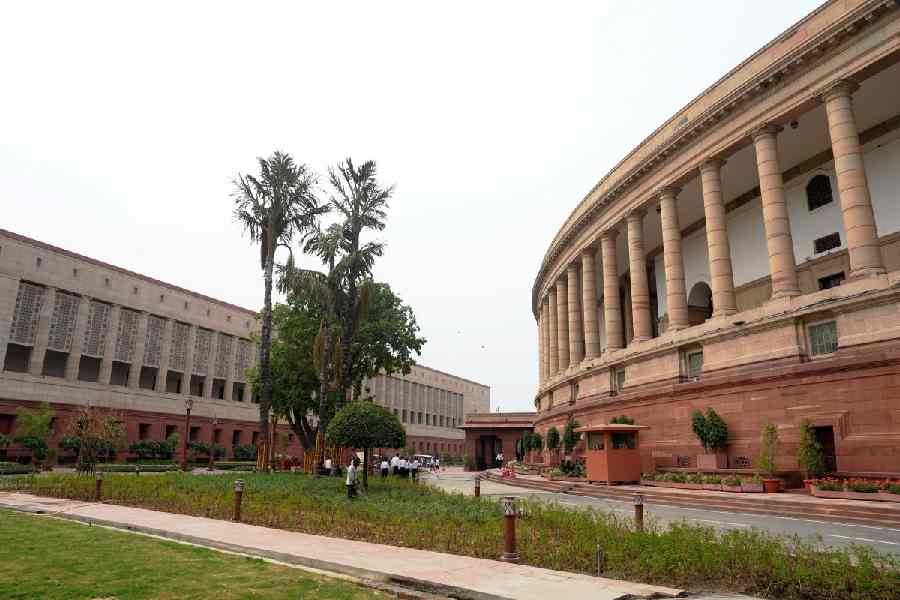Controversy Surrounds Proposed Waqf Law Changes in India

The Indian government’s proposal to amend a long-standing law governing waqf properties has sparked significant protests across the country. Waqf properties, which include mosques, madrassas, and shelter homes, have been managed by a board for centuries. The proposed bill, introduced in August, suggests over 40 amendments to the existing law. While the government claims these changes are necessary to combat corruption and address community demands, many Muslim groups and opposition parties view them as politically motivated attempts to undermine minority rights. As the bill progresses through parliament, the implications for the Muslim community and the management of waqf properties remain contentious.
Understanding Waqf Properties
Waqf properties hold a unique place in Islamic tradition. They are charitable or religious donations made by Muslims for the benefit of the community. These properties cannot be sold or repurposed, as they are considered to belong to God. In India, waqf properties have been utilized for various purposes, including mosques, madrassas, graveyards, and orphanages. However, many of these properties remain vacant or have been encroached upon over the years.
The tradition of waqf in India dates back to the 12th century during the Delhi Sultanate period. The Waqf Act of 1995 established state-level boards to manage these properties. These boards consist of representatives from the state government, Muslim lawmakers, Islamic scholars, and property managers. Currently, there are approximately 872,351 waqf properties across India, covering over 940,000 acres and valued at around 1.2 trillion rupees (approximately $14.22 billion). The government asserts that waqf boards are among the largest landholders in the country, highlighting their significance in the socio-economic landscape.
The Need for Reform
Corruption within waqf boards has been a longstanding issue. Many members have faced accusations of colluding with encroachers to sell waqf land. Critics argue that a considerable number of waqf properties have been illegally occupied by individuals, businesses, and government entities, necessitating immediate reform.
In 2006, the Justice Sachar Committee, established by the previous Congress-led government, recommended waqf reform after assessing the socio-economic conditions of Muslims in India. The committee found that the revenues generated from waqf properties were significantly lower than their potential. It estimated that efficient management could yield an annual revenue of around 120 billion rupees, while current revenues hover around 2 billion rupees. The committee also noted that encroachments by the state, which is supposed to protect waqf interests, were common.
Government data indicates that at least 58,889 waqf properties are currently encroached upon, with over 13,000 under litigation. The proposed amendments aim to address these issues and implement the Sachar Committee’s recommendations. However, the effectiveness of these reforms remains a point of contention among various stakeholders.
Controversies Surrounding the Proposed Changes
The proposed amendments have raised significant concerns among Muslim communities. One of the most contentious aspects is the alteration of ownership rules, which could affect historical mosques, dargahs, and graveyards managed by waqf boards. Many of these properties lack formal documentation, as they were donated orally or without legal records generations ago.
The 1954 Waqf Act recognized such properties under the category of “waqf by user,” but the new bill omits this provision, leaving many properties in a state of uncertainty. Professor Mujibur Rehman, an expert on the political future of Indian Muslims, emphasizes the complexity of tracing ownership of community properties, as management systems have evolved over centuries.
Additionally, the proposed changes would require waqf boards to include non-Muslims as members. While some argue that this could promote secular governance, many fear it may diminish Muslim control over waqf properties. Critics assert that the changes reflect a broader agenda to exert state control over Muslim community assets, raising alarms about the potential erosion of minority rights.
Additional Proposed Changes and Their Implications
The proposed amendments also include a requirement for waqf boards to register their properties with district collectors. This change has drawn criticism for potentially undermining the authority of waqf boards. Prominent Muslim MP Asaduddin Owaisi has voiced concerns that these changes aim to strip Muslims of their land.
Under the current law, state governments appoint a survey commissioner to identify waqf properties and prepare a legally mandated list. If unchallenged for a year, the properties are officially recognized as waqf. However, the proposed changes could necessitate the re-establishment of the status of several waqf properties, putting many historical sites at risk.
Muslim groups acknowledge the need for reform but emphasize that it must consider the community’s interests. Professor Rehman articulates that while the diagnosis of issues within the waqf system may be accurate, the proposed treatment could lead to adverse outcomes for the community. As the bill moves forward, the balance between necessary reform and the protection of minority rights remains a critical concern in India’s socio-political landscape.
Observer Voice is the one stop site for National, International news, Sports, Editor’s Choice, Art/culture contents, Quotes and much more. We also cover historical contents. Historical contents includes World History, Indian History, and what happened today. The website also covers Entertainment across the India and World.

